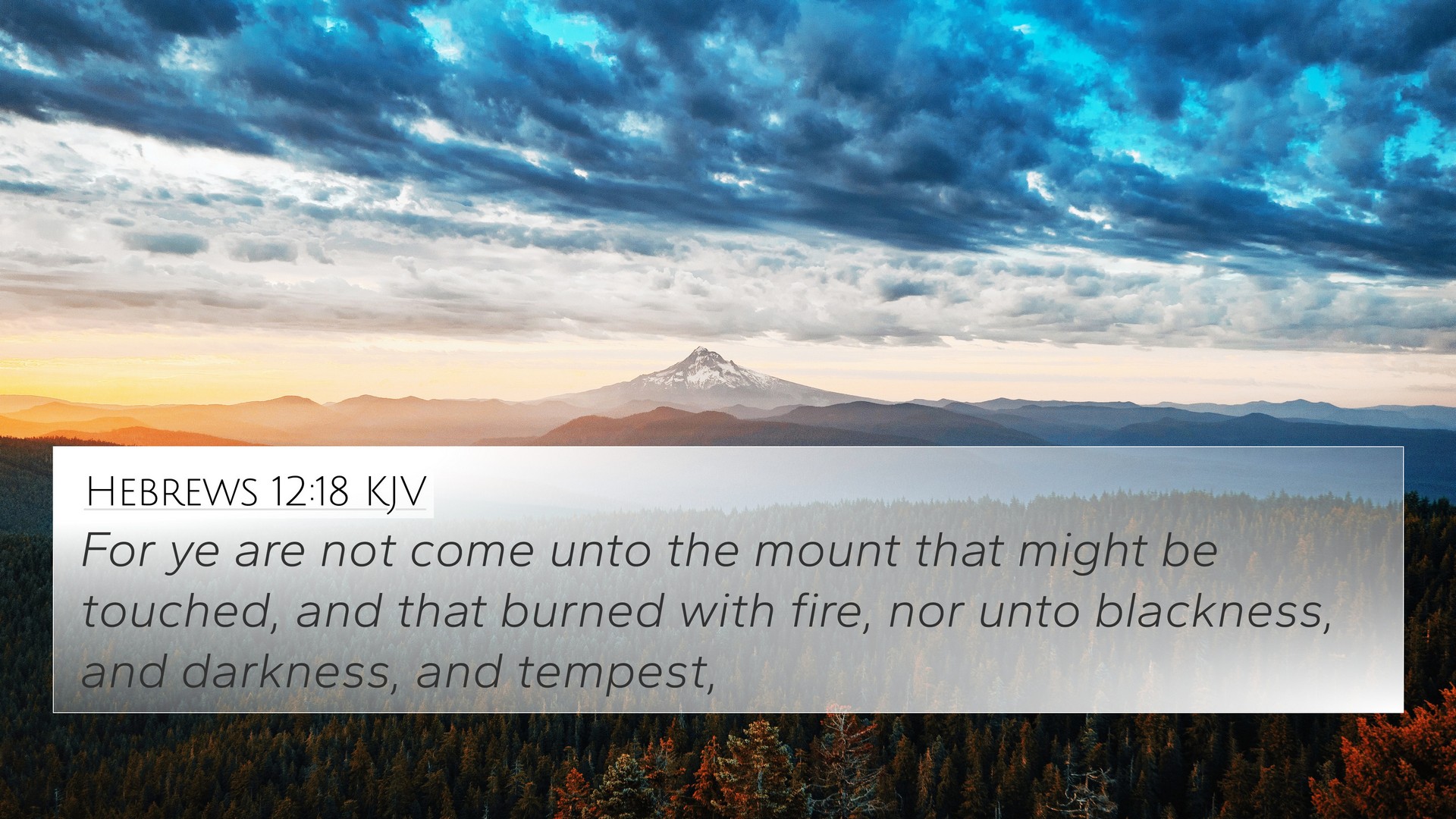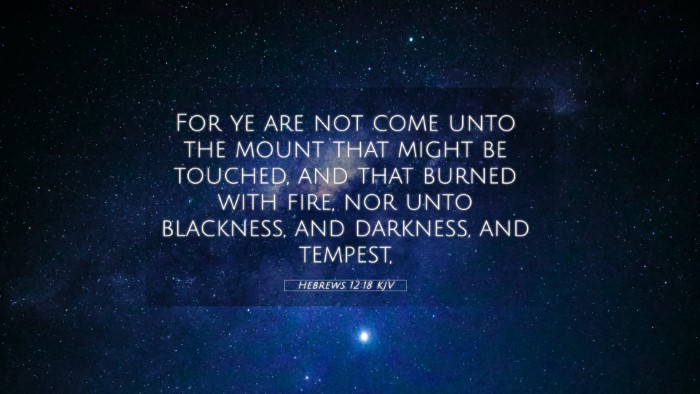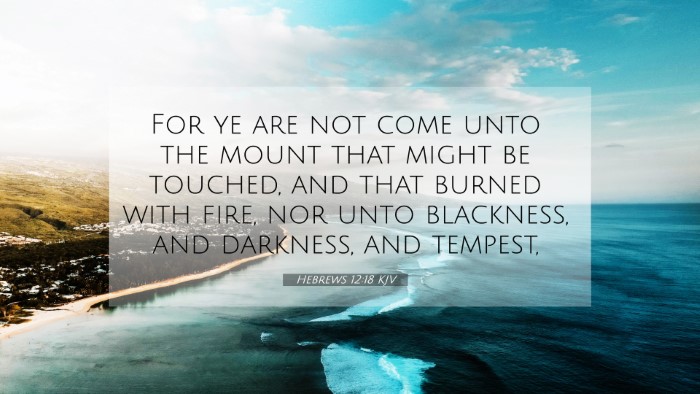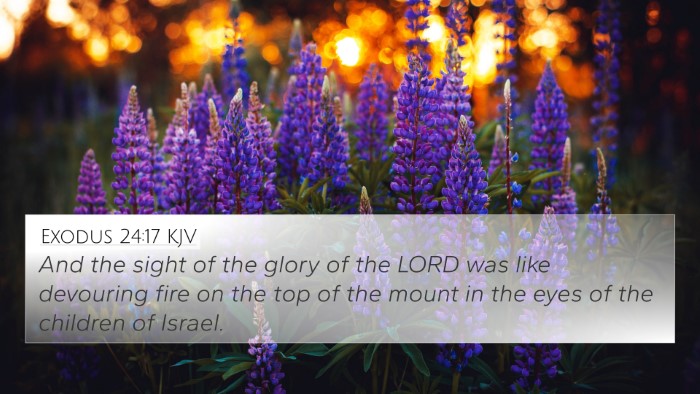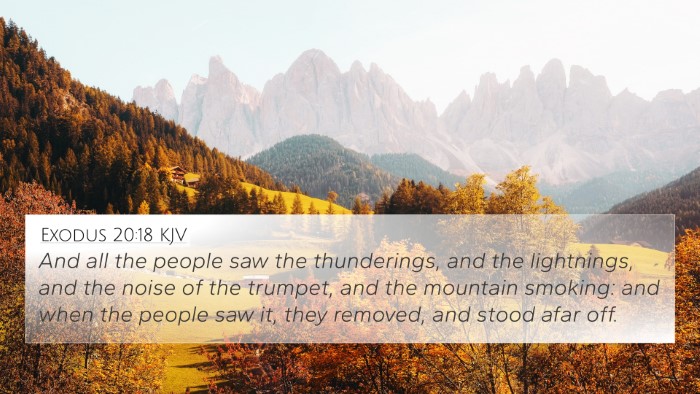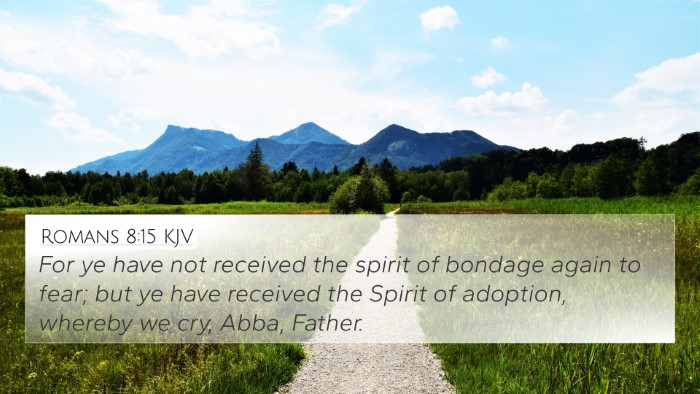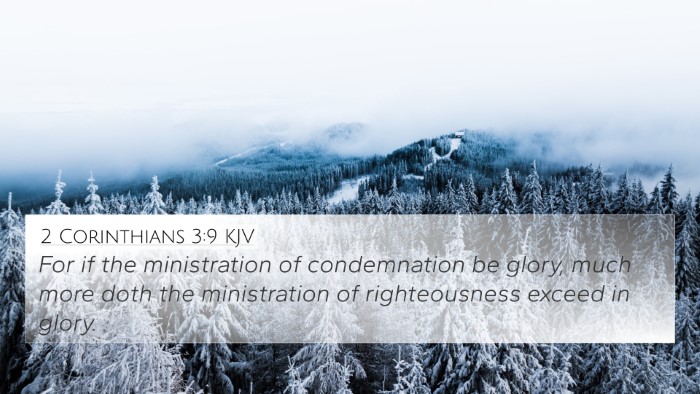Understanding Hebrews 12:18
Bible Verse: Hebrews 12:18 - "For ye are not come unto the mount that might be touched, and that burned with fire, nor unto blackness, and darkness, and tempest."
Contextual Overview
This verse draws a contrast between the experience of the Israelites at Mount Sinai and the spiritual privileges of Christians. The imagery of Sinai evokes a sense of fear and awe, emphasizing the severity of the law given to Moses. The author of Hebrews seeks to show that believers are part of a new covenant, one that transforms their relationship with God.
Insights from Public Domain Commentaries
-
Matthew Henry:
Henry emphasizes that the physical Mount Sinai represented a place of fear and condemnation. The Israelites trembled at God’s presence because of the law that brought knowledge of sin. He argues that the fear of Sinai contrasts dramatically with the confidence that Christians have through Christ.
-
Albert Barnes:
Barnes notes that the elements mentioned—including fire, darkness, and tempest—symbolize the terrifying presence of God in his judgment. He explains that the writer's intent is to reassure believers that they are not approaching God through those frightening elements, but rather through grace and mercy found in Christ.
-
Adam Clarke:
Clarke elaborates on the physical sensations associated with Sinai, detailing how they communicated God’s holiness and the danger of disobedience. He reflects on how this experience should remind Christians of the serious nature of their faith and the privilege they have of approaching God freely through Jesus’ sacrifice.
Significance of Hebrew 12:18
This verse is central to understanding the broader themes of Hebrews, particularly the shift from the old covenant to the new. It beckons readers to realize that their relationship with God is no longer governed by fear—signified by terrifying signs at Sinai—but by love and acceptance through Jesus Christ.
Key Themes
- Spiritual vs. Physical: The contrast between the physical mountain that could be touched and the spiritual mountain of God, which represents the new covenant.
- Fear and Awe: The fears associated with Sinai serve to improve our understanding of the grace we have through Christ, who fulfills the law.
- Covenant Theology: The shift from the old covenant of Law to the new covenant of grace is a vital theme throughout the book of Hebrews.
Related Bible Cross-References
To fully grasp the richness of Hebrews 12:18, it's essential to look at related scriptures that enhance the meaning:
- Exodus 19:12-13: Description of the Sinai experience.
- Exodus 20:18-21: The people's fear and their distance from God.
- Deuteronomy 4:11-12: Emphasis on the terrors seen at Sinai.
- Galatians 4:24-26: The allegory of the two covenants.
- Hebrews 12:22: The contrast to Mount Zion, the city of the living God.
- Romans 8:15: The spirit of adoption versus the fear of bondage.
- 1 John 4:18: Perfect love casts out fear.
Connections Between Bible Verses
By examining Hebrews 12:18 in conjunction with these references, we can see the connections between Old and New Testament themes:
- Old Covenant vs. New Covenant: The fear of the law at Sinai is juxtaposed with the grace offered through Jesus.
- Divine Presence: Both elements explore the nature of God's presence and how it is perceived by His people.
Thematic Bible Verse Connections
Hebrews 12:18 serves as a keystone for a deeper understanding of many Biblical themes:
- Fear of God: How the fear of God has transitioned from terror to reverence.
- Grace: The distinction between the law and grace as the guiding principles of worship.
Cross-Referencing Biblical Texts
To aid in the understanding of this scripture, tools for Bible cross-referencing can enhance study:
- Bible Concordance: Helpful to find specific words that connect with Hebrews 12:18.
- Bible Cross-Reference Guide: Organizes related verses for deeper theological study.
- Comprehensive Bible Cross-Reference Materials: Offers thematic studies and doctrinal connections.
Conclusion
Hebrews 12:18 invites believers to appreciate the radical shift in their relationship with God. No longer approaching Him through the fear and trembling associated with Sinai, they now come to Him through Christ, experiencing His love and acceptance. This verse not only highlights foundational theological truths but also encourages believers to seek deeper connections throughout scripture, enhancing their understanding and strengthening their faith.
